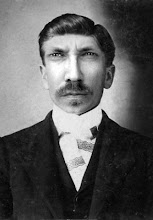
It's exhilarating to watch Tilda Swinton in JULIA. The director says their film was inspired by Gena Rowlands in GLORIA. I would say the inspiration is a lot more expansive than that, because while Julia, like Gloria, is selfish and tough, she's also channeling a certain alcoholic dishevelment that Gloria doesn't share. True, there's the uneasy relationship with a child. Both Gloria and Julia are forced into the position of caretaker, and their stories explore issues of maternal instinct through the manipulations of the thriller genre; violence, risk, pursuit, forced separation, charged reunion.
Gloria is a much more commercial film, so that, when ex-moll Rowlands assumes responsibility for the son of neighbors who've been taken out by the mob, the story involves itself with chipping away at her tough guy facade, showing a softie underneath. Julia's ward needs more protection from her than from anyone else. It's Julia's bright idea to kidnap the kid, and she treats her hostage pretty horribly, tying him up with phone cord at night, secretly drugging him, locking him in the bathroom, abandoning him in the desert to collect ransom money.
Audiences responded to JULIA unfavorably during its festival run, and no wonder; the comparison to GLORIA sets up a series of expectations which are never fulfilled. Anyone familiar with GLORIA will bring to JULIA the need to see a traditional transformation in the protagonist, a motherly denouement. Julia will need to atone for her involvement in the kid's reckless endangerment; however grudgingly, she'll need to accept her rightful role as mama figure, curing her directionless alcoholism by awakening latent instincts. It's easy to see why people jeered. It isn't just that JULIA ends abruptly, with no real indication what Julia will do with the child, now that they've escaped from their pursuers. It really boils down to Julia never making amends.
The film is messy this way. Rather than work toward the kind of redemptive resolution audiences have come to recognize, Julia keeps getting in deeper. Like a real alcoholic, as opposed to a movie alcoholic, she persists in viewing her behavior through various self-righteous, self-pitying filters. The film practically cuts her off, mid-sentence, in the middle of what might be yet another in a long line of excuses, prevarications, or series of lies. Julia is never forced to tell the truth to anyone. You can see the wheels of that addict mindset spinning right into the credits, the same bewildered look on her face that you see in the beginning, as if like most alcoholics she only fleetingly recognizes the deep shit she's in, at which point she's dog-paddling her way out of it. Nearest exit will do.
I've loved Tilda Swinton since Sally Potter's ORLANDO, but I'd grown disenchanted with her. Seeing her in MICHAEL CLAYTON recently felt like a step in the right direction. That film uses Swinton's reserve, her mannered, controlled screen presence, in useful ways, harnessing that rigidity to a character you would expect to possess those qualities. The moment of collapse at the end of the movie, brief as it is, was a pay-off, one I realized I'd been wanting for years. It gave a detailed presence to Swinton's reserve. It showed seismic activity underneath the surface, and provided a sense of contrast. Often, Swinton's edge feels smoothed out, divested of shading and contours. Her performances can end up feeling flat for me; they're too preoccupied with the kind of slow burn she does so well, and you never see the cinders.
JULIA'S so called messiness allowed Swinton a lot of freedom, it seems to me. It's a character study in the truest sense of the term, someone caught in a series of moments. The focus isn't on arc necessarily--though one is there and can be determined by each indivual viewer--but on texture and depth. It's the closest Swinton has come to feeling like an American on screen, full of contradictions, unfocused energy, abrupt moments of inspiration and despair, possessed of a free-wheeling, hubristically makeshift sense of agency. I would say JULIA'S inspiration has more to do with the various iterations of her persona Gena Rowlands detailed on film for Cassavetes, with nods to OPENING NIGHT's restless pacing and WOMAN ON THE VERGE OF A NERVOUS BREAKDOWN's blackout narrative sensibility among other things. It's hard to say whether JULIA would have been better served by these atlas points of comparison, but those films share with JULIA, more than GLORIA, a vivid sense of keyhole voyeurism, implicating their viewers in the random sloppiness and improvisational hazards of less commercial views of identity.




No comments:
Post a Comment